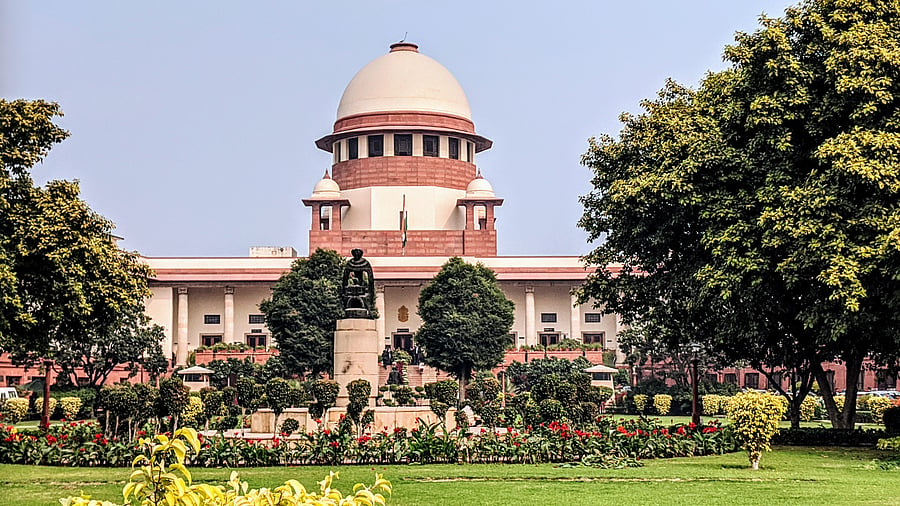
Supreme Court of India.
Credit: iStock
New Delhi: The Supreme Court on Monday rejected an argument against the provision in Waqf Amendment Act, declaring the protected monument or area as waqf to be void, on the ground that the persons practicing Islamic religion would be deprived of performing their religious practices.
"We, however, are of the considered view that the said argument does not hold water,'' a bench of Chief Justice of India B R Gavai and Justice Augustine George Masih said.
The court referred to Section 5(6) of the Ancient Monuments and Archaeological Sites and Remains Act, 1958, which permits the citizens to continue with their customary religious practices even if such an area is a protected monument.
Dealing with provisions related to lands owned by the Scheduled Tribes, he court also found Section 3D of the Amended Waqf Act, which has been enacted with the avowed object of safeguarding the interest of one of the most marginalized and vulnerable sections of the country, i.e., the Scheduled Tribes cannot be said to have no nexus with the object sought to be achieved.
Such a provision cannot, therefore, be said to be prima facie arbitrary so as to stay the same, it said.
In its judgment, the court also declined to go into the question regarding inclusion of non-Muslim members amounting to interference in religious practices, at this stage.
It noted Solicitor General has made a categorical statement that the number of non-Muslim members in the Central Waqf Council as provided under Section 9 of the Amended Waqf Act would not exceed four and they will not exceed three in the State Waqf Board as provided under Section 14 of the Amended Waqf Act.
"In order to avoid any ambiguity, we propose to issue a direction that the Central Waqf Council should not have non-Muslim members exceeding four in number and three non Muslim members insofar as Board is concerned,'' the bench said.
The court also held the deletion of the provision which permitted the person not professing Islam to give or donate his property for the purpose of waqf cannot be said to be arbitrary inasmuch as even according to petitioners waqf is specific to Islamic religion.
